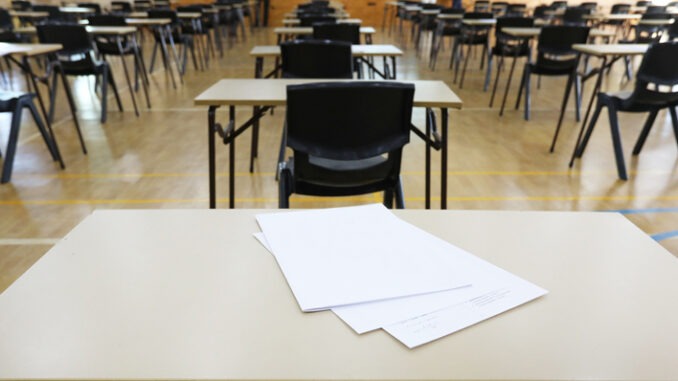
As reported by the BBC, GCSEs for Wales will put less emphasis on exams and aim to increase the use of digital technology, the watchdog has said
Teachers, pupils, parents and employers are being asked for their views on the latest plans for qualifications to be taught from 2025. Qualifications Wales is also asking for feedback on names for a number of new subjects. The reforms include controversial plans to merge language and literature into a single GCSE, and individual science subjects will be combined in one qualification.
When those plans were published last year, it raised concerns of ‘dumbing down’ but Qualifications Wales has argued that it will broaden pupils’ learning. Changes are happening to fit in with the new Curriculum for Wales, which was formally introduced in primary schools and about half of secondary schools in September, marking the start of the rollout to all three to 16-year-olds. The consultation is about the content of the qualifications and how they will be assessed, with the aim of giving schools more flexibility to pick and choose which areas they cover and how they assess pupils. Overall, there is less emphasis on traditional exams, the regulator said.
In the new English language and literature, and Cymraeg language and literature GCSEs, the plan is for 60% to be assessed by exams compared to 80% at the moment. A quarter of the sciences GCSE will be practical work, but the new maths GCSE will still be 100% exam-based, though these could be staggered through the course.
Sarah Parry, headteacher at Llanishen High School in Cardiff said it was “absolutely vital” that GCSEs change to meet the needs of young people and provide a broad and balanced curriculum.
“We need a balanced mix of assessment methods, with less emphasis on exams,” she said.
“If Covid taught us anything in terms of assessment, it is not to put all of our eggs in one basket. If we rely solely on exams at the end of year 11, we create a single point of failure.”
Digital assessments are already used in some subjects, but the proposals suggest on-screen assessments could be used in more GCSEs. However, the consultation asks for feedback on how practical this would be – especially making sure there was enough devices for everyone.
Pryderi ap Rhisiart, managing director of M-SParc, a science park on Anglesey, believes the new Curriculum of Wales is exciting and requires a rethink of GCSEs.
“But at the same time employers and other people will be looking at some way of measuring how our students and young people are doing,” he said.
“It offers us a massive economic opportunity if we can close the skills gap.
“We need the new curriculum to develop our young people to have the skills, to be able to apply those skills and to link them to economic opportunities.”
The qualifications watchdog is asking for views on the content of 26 GCSEs, including food and nutrition, health and physical education, engineering, and film and digital media. Some reforms have been controversial, including ditching separate GCSEs in physics, biology and chemistry in favour of a new qualification, equivalent to two GCSEs – called GCSE the sciences. The consultation also asks for feedback on GCSE Core Cymraeg – the new Welsh qualification for English medium schools, which will replace Welsh second language.


Be the first to comment